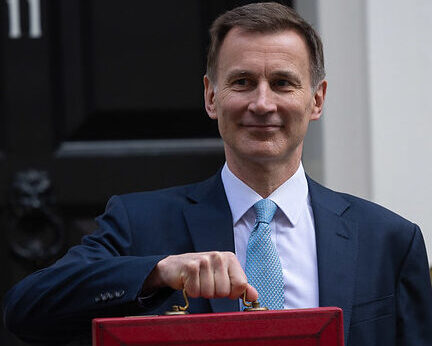
On the 6 March, the Chancellor of the Exchequer, Jeremy Hunt, presented his 2024 Spring Budget to Parliament stating “the policies I announce today mean more investment, more jobs. better public services and lower taxes…in a budget for long term growth.”
Notable measures of the budget included significant tax reductions, particularly in National Insurance Contributions (NICs), where Class 1 employee NICs will be reduced from 10% to 8% from the 6th of April. As well as extending the temporary 5p cut to fuel duty for an additional 12 months, and freezing alcohol duty rates until February 2025.
These tax reductions are going to be implemented alongside revenue-raising measures such as changes to the taxation of non-domiciled individuals, extension of the energy profits levy, abolition of preferential tax regimes for short-term holiday lets, introduction of duties on vaping products, and increases in tobacco and air passenger duties.
The budget also included plans to catalyse the growth of selected industries:
Creative Industries:
- The introduction of a UK Independent Film Tax Credit at a rate of 53% for qualifying film production expenditure under £15 million.
- A 40% reduction on gross business rates bills, for eligible film studios in England until 2034.
- An increase in credit rate, for visual effects costs in film and high-end TV to 39% from April 2025.
- A permanently set Theatre Tax Relief, Orchestra Tax Relief, and Museums and Galleries Exhibitions Tax Relief at 40% and 45% for certain productions.
Green Industries:
- Increases in funding for the Green Industries Growth Accelerator (GIGA) by up to £120 million.
- Allocation of funds for renewable energy Contracts for Difference Allocation Round 6.
- Agreements on the purchase of nuclear sites and progress in Small Modular Reactor competition.
Digital Technology and AI:
- The introduction of various initiatives including AI Upskilling Fund Pilot, SME Digital Adoption Taskforce, and funding for the Turing Institute.
There is also a plan to drive greater productivity and efficiency across the public sector. This includes implementing the NHS Long Term Workforce, which sets to double medical school places to 15,000, create 24,000 more nursing and midwifery training places by 2031. It also includes measures to significantly improve NHS productivity growth over the next 15 years.
Reactions
Whilst increases in nominal funding have been widely acknowledged, critics argue that the Spring budget 2024 does little to address long-term problems like addressing the substantial backlog in maintenance and infrastructure in the UK. For example, hospitals have a maintenance backlog of £10.2bn and the Department of Health and Social Care (DHSC) has been allocated approximately £11 billion for capital expenditure in the current fiscal year.
Critics also argue that the plans announced in the Budget to assist local residents in tourist areas to access housing are insufficient after the announcement of the termination of tax breaks for holiday homes in the 2024 Spring Budget to enhance housing availability for locals. However, many tourist hotspots are experiencing surging housing waiting lists due to the scarcity of affordable homes and critics argue that these measures alone may not sufficiently incentivize landlords to address housing shortages.
Image: The Chancellor of the Exchequer delivers the Budget, HM Treasury, 2024 // CC BY-NC-ND 2.0 DEED



Average Rating